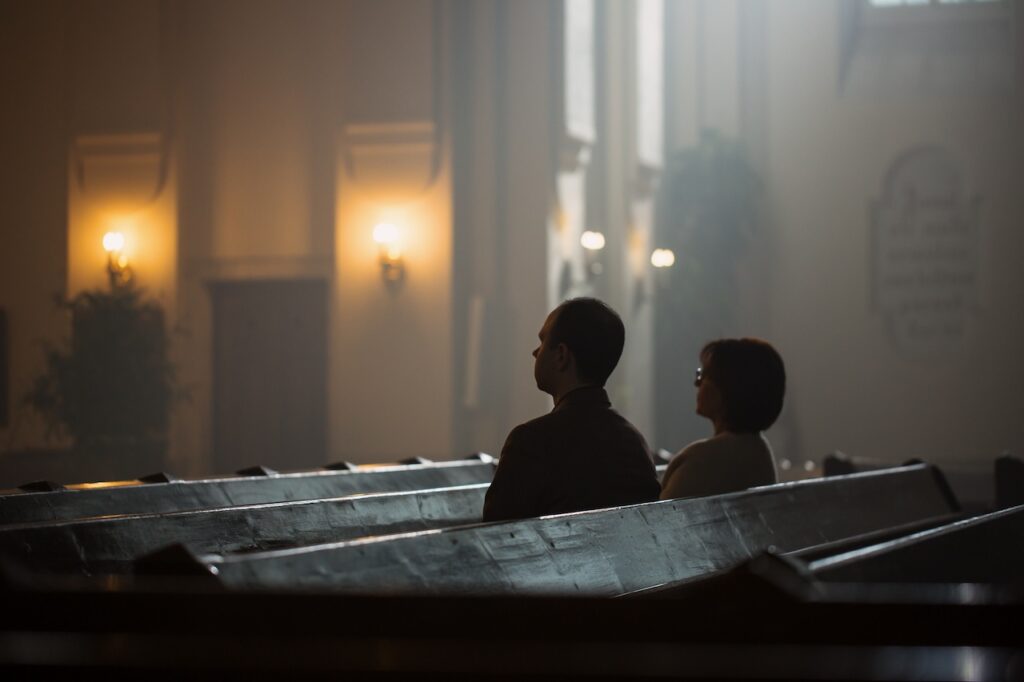At the desk for Marriage, Family, and Life in the Office for Evangelization, it is not too uncommon to hear from distraught spouses seeking help or guidance for their troubled marriage. Occasionally, in those conversations we’ll hear what a person thinks the Catholic position on a topic is – while in reality, the Church holds something quite different.
Through the pain of difficult marriages and divorce, many believe that their situation has eternally separated them from the Lord or that they are no longer welcome in the Church. This column aims to begin addressing those misconceptions and offer a bit of hope in this Jubilee Year.
The number one misconception we hear: “Divorced Catholics can never receive the Eucharist again.”
Good news – this is not true! Anyone outside of a state of grace needs to seek reconciliation before receiving the Eucharist. Divorce ends a marriage legally, not sacramentally.
The Catholic Church understands marriage as an unbreakable covenant. “A marriage that is ratified and consummated cannot be dissolved by any human power for any reason other than death” (CCC 2382).
This view is fundamentally different than the contractual view of marriage shared by popular culture, the government, and other denominations. Contracts can be broken or dissolved; covenants are indissoluble. Even if the civil legal system says the couple is divorced, they are still sacramentally married.
Divorce is a serious matter; it harms spouses and traumatizes children. It is a “grave offense against the natural law” (CCC 2384) and should be vigorously avoided. However, the reality remains that in a state of grace, divorced Catholics are still able to participate in the life of the Church and receive the Eucharist.
Misconception two: “Annulments are a Catholic version of divorce.”
An annulment cannot void a sacramental marriage. While a marriage covenant can never be broken, it is possible that the covenant was never validly entered into.
There is an office within the diocese called the Tribunal, which reviews and adjudicates questions of canon law – the laws governing sacraments and the Church. The tribunal has a process in place for assessing cases where a sacramental marriage may have never been entered into in the first place. In civil divorce proceedings, behaviors and events that transpired during the marriage are examined. In an annulment investigation, the behaviors, events, and mindset of the couple before the wedding are examined.
Misconception three: “The Church won’t allow me to leave my abusive or adulterous spouse.”
If you are in danger, you can leave. Physical separation from your spouse is allowed. Pope Leo XIII wrote in 1880: “When, indeed, matters have come to such a pitch that it seems impossible for [spouses] to live together any longer, then the Church allows them to live apart.”
However, the Church always has a preference for healing, reconciliation, and redemption. Pope Leo continues “…yet [the Church] never ceases to endeavor to bring about a reconciliation, and never despairs of doing so” (Arcanum Divinae 41).
Despite the graces poured out through this beautiful sacrament to strengthen and equip couples to love selflessly, marriage is hard. In our fallen humanity, we struggle to love the way we ought. The Church, however, always aims at healing, restoring, and bringing all people back into relationship with Christ.
The faithful of the diocese are encouraged in this Jubilee Year of Hope to pray for healing and offer support to those in difficult marriages, those who have divorced, and those who have been hurt by it.
Those in struggling marriages can also find hope and relief through Retrouvaille retreats (helpourmarriage.org), finding help at your local parish by asking to take the “Enrich” side of the “Prepare/Enrich” inventory, or seeking counseling in a professional or pastoral setting (catholiccounselors.com). If you are the adult child of divorced parents, Life Giving Wounds (lifegivingwounds.org) is a ministry that offers retreats for healing and hope.
If you are in one of these situations, or know someone who is, we encourage you to reach out to your local parish, the Office for Evangelization, or, if appropriate, the Diocesan Tribunal, to receive care, healing, reconciliation, hope, and guidance back to full communion.
 Daniel Harms has worked for the Diocese of Richmond since 2012 and served as Associate Director for Marriage, Family, and Life since 2023. As a speaker and musician, Dan has presented to Catholic audiences in 46 states and seven countries. He and his family are parishioners at St. Edward the Confessor, Richmond.
Daniel Harms has worked for the Diocese of Richmond since 2012 and served as Associate Director for Marriage, Family, and Life since 2023. As a speaker and musician, Dan has presented to Catholic audiences in 46 states and seven countries. He and his family are parishioners at St. Edward the Confessor, Richmond.

